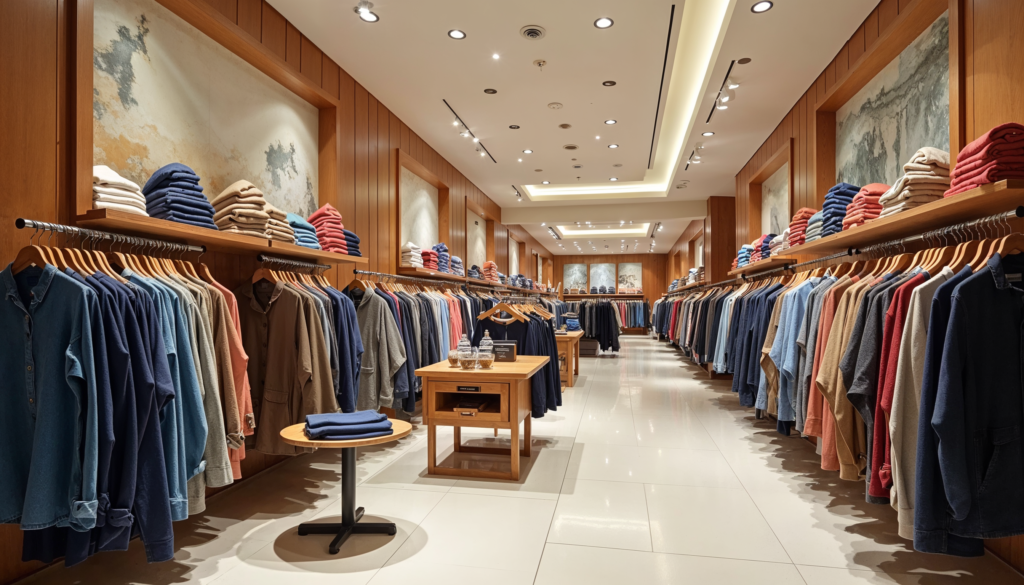Filodyo is is a pioneering concept known as a “Heat” Music Universe, established by Hakan E. (aka HEATMAKER). This innovative idea redefines the traditional music industry by creating a digital ecosystem where music is entirely produced and curated in a virtual environment. Hakan E, who has held various roles at leading radio stations in Turkey since the advent of private radio broadcasting, identified a gap in the market. He first launched “not FM” and later founded Filodyo to meet the evolving needs of the industry. He continues his academic pursuits and in-depth research at Istanbul Medipol University’s Faculty of Communication, in the Radio, Television, and Cinema Department. He is also an experienced software developer who specializes in building robust and scalable applications using advanced programming languages such as Java and Python.
Filodyo emphasizes the importance of auditory atmosphere by producing music specifically designed for stores and businesses. Scientific research has shown that music can significantly influence customer behavior in shopping environments. For example, studies have found that the right choice of music can extend the time customers spend in a store, which can positively impact sales (Milliman, 1982). Additionally, the type of music played can affect customer spending; it has been observed that slow-tempo music leads to higher spending compared to fast-tempo music (Yalch & Spangenberg, 1990).

However, it should be noted that the findings from Milliman’s 1982 and Yalch & Spangenberg’s 1990 studies might be somewhat outdated, as they were not conducted with modern shopping centers in mind. It is important to highlight that the shopping experience has undergone significant changes since the 1980s and 1990s. Today, with advancements in technology and the rise of digitalization, customer expectations and shopping habits have changed considerably. Customers now seek more personalized experiences and expect greater convenience in their shopping processes.
Filodyo approaches the impact of music in shopping environments from a much more complex perspective, not merely considering tempo. While earlier studies observed that slow-tempo music leads to more spending compared to fast tempos, Filodyo takes a detailed look at the psychological effects of major and minor tones in melodic structures. Major tones are typically described as ‘happy’ or ‘cheerful’ notes, known to create a positive emotional atmosphere. In music science, it has been shown that the use of these notes can have an energizing and morale-boosting effect on listeners. Such melodies can enhance the overall mood of customers in a shopping environment, helping them have a more positive shopping experience. Additionally, tonal differences can profoundly influence customers’ purchasing decisions.
On the other hand, minor tones are often characterized as ‘dark’ or ‘melancholic’ sounds, with the potential to create a more introspective and contemplative atmosphere. Psychoacoustic studies have shown that the use of minor tones can increase emotional depth and a sense of connection in listeners, allowing them to form a more emotional bond with certain products.
Filodyo’s understanding, based on these scientific principles, aims to strategically use musical elements and tones to influence customers’ emotional states and, consequently, their shopping behaviors. With this approach, Hakan E. emphasizes that musical structures shape not only the atmosphere but also the psychological experiences of both customers and employees. These conscious choices encourage a more appropriate and targeted emotional response in shopping environments, which can positively impact both customer satisfaction and sales.
Therefore, Filodyo’s music production process is carefully crafted, taking into account these complex musical elements. The effort to create an optimized auditory environment that meets the needs of both customers and employees is one of the cornerstones of Filodyo’s success and its innovative approach in the industry.
In line with the requirements of this new era, “not FM” and Filodyo aim to keep their music production and selection constantly updated, employing dynamic and diverse music strategies to meet the needs of both customers and employees. This approach is flexible, adapting to various times of the day and seasonal changes, aligning with the dynamics of the modern retail environment. Thus, Filodyo emphasizes that the atmosphere created through music not only boosts sales but also supports employee job satisfaction and productivity.

In this context, Filodyo enriches the atmosphere of businesses through custom music production, adding value by using strategies supported by scientific evidence. This strategic approach aims to enhance the customer experience and, consequently, help businesses achieve their customer satisfaction and revenue goals. The deep knowledge and experience of “not FM” and Filodyo in this field allow them to stand out in the industry.
The custom music produced by Filodyo not only influences customer behavior but also plays a significant role in motivating store employees, who can be considered internal customers.
Scientific research indicates that the tempo and type of music can significantly impact employee productivity. For example, various studies have shown that music with an appropriate tempo can boost employees’ energy levels and reduce stress (Lesiuk, 2005). This is especially true for retail employees who perform physically and mentally demanding tasks for long hours.
Taking into account the dual impact of music, Filodyo adopts a flexible tempo policy to enhance both the shopping experience for customers and the motivation of store employees, who are considered internal customers. The company aims to balance the needs of both customers and employees by dynamically adjusting music selection based on different times of the day and levels of activity. For instance, more energetic music is preferred at the start of the workday, while more calming music is played later in the day to encourage relaxation for both customers and store employees. This strategy allows for the creation of a consistent and efficient atmosphere for businesses, ultimately increasing both sales and employee satisfaction.

